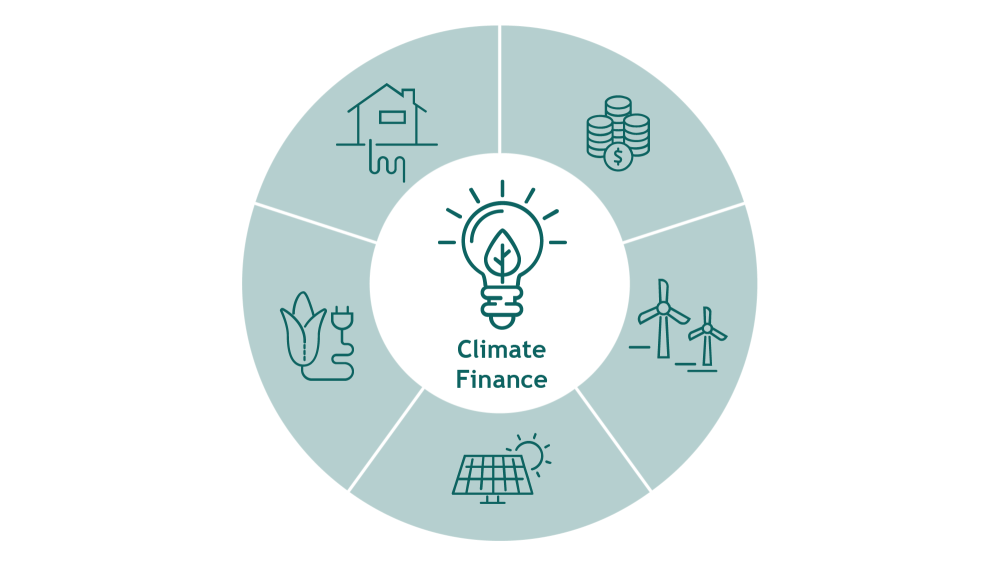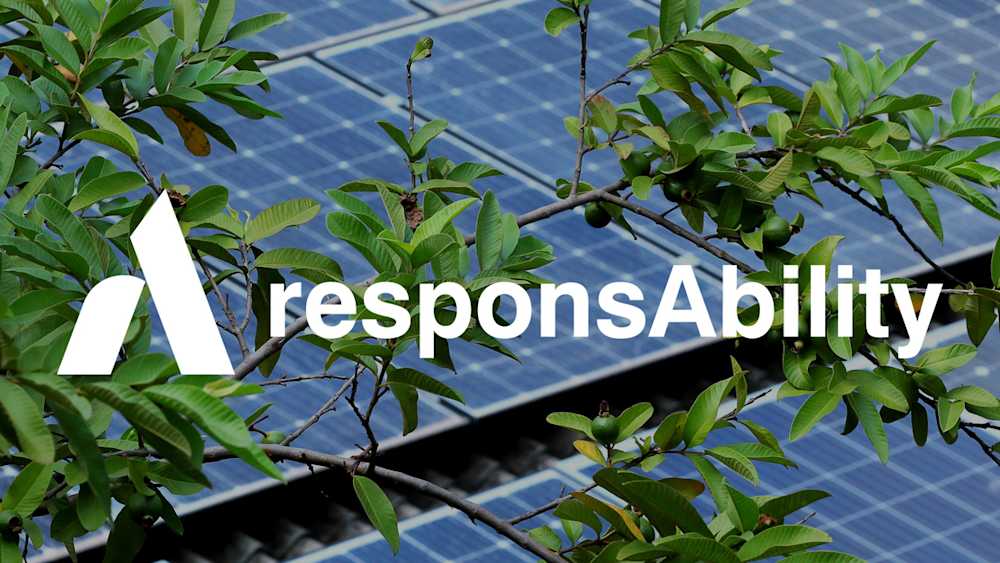
Learn more about responsAbility and
Climate Finance
What is Climate Finance?
Climate Finance means investing in ways that directly contribute to mitigating climate change, support adaptation to climate change and drive sustainable development. This can include direct investments into renewable energy projects, driving the implementation of green lending programs in local banks, and investing in energy efficiency projects that offer big wins in energy savings while implementing climate-friendly alternatives.

Renewable Energy, especially Commercial and Industrial (C&I) Solar, has become an ideal segment for investment, as the advancement of technology coupled with the (now) lower price, means big wins for small and medium sized enterprises, who have a lot to gain from clean, cheaper energy.
Green Lending is lending that is dependent on environmental criteria for the planned use of the funds. To remain competitive, many banks must transition to green loans, and we support them in this journey with technical assistance and peer learning exchanges.
Energy Efficiency Investing in energy efficiency is paramount, as it stands as the single largest measure to curb energy demand in the pursuit of Net Zero Emissions by 2050. Often hailed as the "first fuel" in clean energy transitions, energy efficiency offers some of the most rapid and economically viable options for CO2 mitigation.
Energy Access, be it to solar, wind, or hydropower, is a critical area for investment as developing markets are hungry for reliable, clean power due to unreliable grids, remote locations and unsafe alternatives for light, heating and electricity.
Climate Smart Food Systems are a must, as 20-30% of global GHG emissions are from food and agriculture globally. From drip-irrigation to high-tech weather-monitoring and harvesting, now is the time to invest in climate-smart technology.

Why invest in Climate Finance in Emerging Markets?
Energy Demand
2.2%
Global energy demand rose by 2.2% in 2024, well above the past decade’s 1.3% average. It is expected to continue increasing in the years ahead, driven by population and economic growth.
GHG emissions reduction
43%
To limiting global warming to around 1.5°C, global greenhouse gas emissions must peak before 2025 and decline by roughly 43% by 2030.
Investment demand
1.6 trillion
Clean-energy investment in emerging and developing economies outside China needs to rise from USD 270 billion today to USD 1.6 trillion per year by the early 2030s
Climate Finance in the News
Meet our Climate Finance Leadership Team

Ewout van der Molen
Head of Climate Finance

Stefan Issler
Head of Climate Infrastructure Investments

David Diaz Formidoni
Head of Financial Institutions Investments

Sameer Tirkar
Head – Climate Infrastructure Investments, APAC

Antonia Schaeli
Deputy Head of Direct Investments, Climate Finance

Vivian Kotun
Head of Business Development

Sathish Dhanapal
Head of Climate Advisory Specialists

